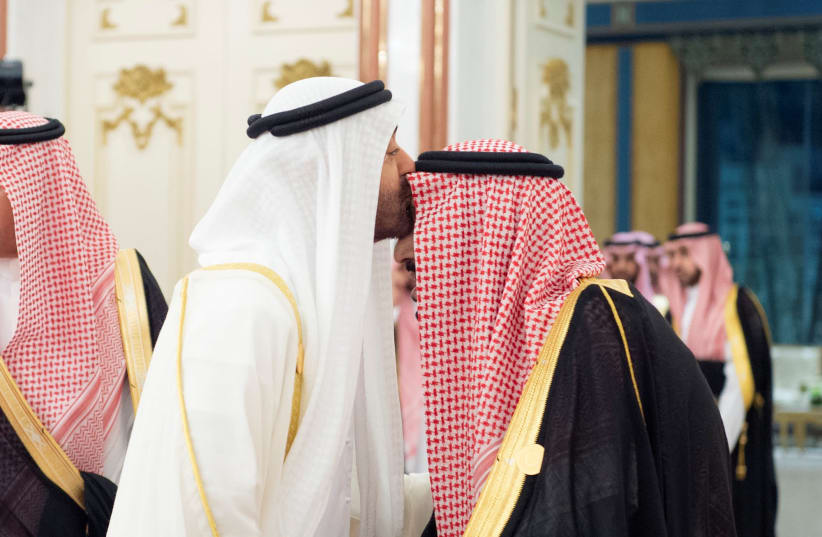Abu Dhabi crown prince, Saudi official discuss military, defense matters
They discussed "challenges facing the Gulf Arab region and repercussions on the stability and security of its countries ... and efforts to confront them," state news agency WAM reported.
